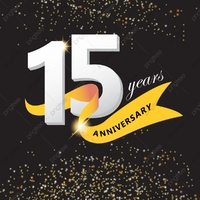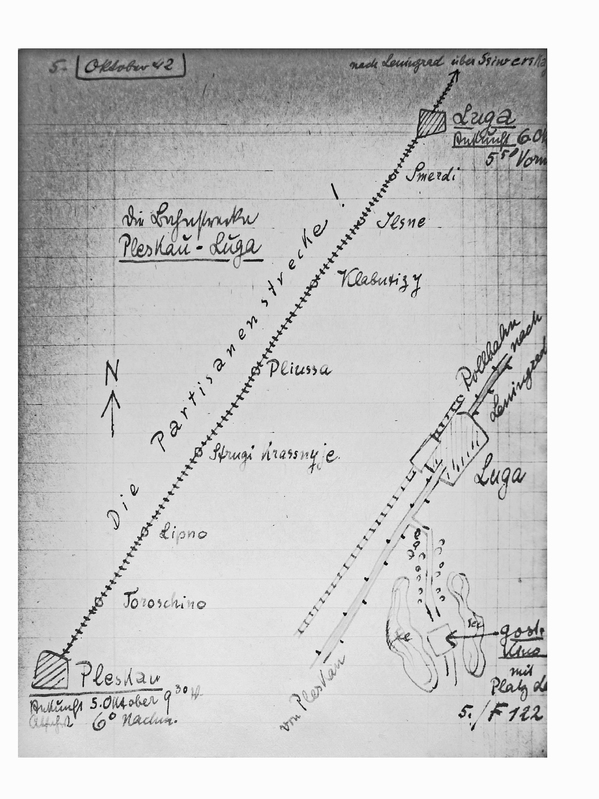- Home
- POSTER GALLERY
- ❗️BOOK & POSTER STORE❗️
- About the Posters
- The William Gillespie Collection
- Our Publishing House
- ❗️GFDN interviews author and collector William Gillespie ❗️
- Our most expensive & inexpensive finds!
- ❗️***NEW!*** Poster of the Month ❗️
- ❗️NEW ❗️Film Posters – Demands on an important means of film advertising. ❗️
- In our Book + Zeitschrift Library
- ❗️ ***NEW!*** Hitler Youth Quex – A Guide for the English–speaking Reader ***NEW!*** ❗️
- ❗️***NEW!*** Table of Contents of our new HJ QUEX book❗️
- ❗️Hitler Youth Quex Guide - early praise! ❗️
- Recent loans from the Collection
- Farewell Horst Claus. (1940–2024 †)
- "Der Deutsche Film" Zeitschrift
- ❗️ ***NEW!***German "Tendency" Films (Tendenzfilme) in the Third Reich ❗️
- KARL RITTER
- Karl Ritter original film posers in this Collection
- "Besatzung Dora" ( † 1943)
- "The Making of The Crew of the Dora"
- Karl Ritter at the 1938 Reichsfilmkammer Congress
- INDEX -"Karl Ritter" book, 2nd edition
- Karl Ritter's Legion Condor (1939, unfinished)
- Excerpt from our "Dora" book
- ∆∆∆∆∆ High praise for our DORA book! ∆∆∆∆∆
- TABLE OF CONTENTS – "Legion Condor"
- § § § § § Early Praise for our LEGION CONDOR book! § § § § §
- ❗️"Das Leben geht weiter" and Karl Ritter ❗️
- ❗️Dateline: Ufa - April 11, 1945 ❗️
- Zarah Leander Europe–wide !
- Japan Military Film and Karl Ritter
- Karl Ritter after 1945
- 1935 Film Congress
- Poster Exhibition in Berlin, March 1939
- Potsdam poster exhibition 12 April–25 August 2019
- Leni Riefenstahl's two "Olympia" Films (1938)
- "Ohm Krüger" (1941)
- Emil Jannings
- "Blutendes Deutschland" (1933)
- Hannes Stelzer ( † 1944)
- Klaus Detlef Sierck ( † 1944)
- Film stills
- Reich Film Censorship Offices
- ❗️***NEW!***The Fate of the German Film Industry in May 1945 ❗️
- Film censorship cards
- Film Archives
- Cinema advertising
- School filmstrips
- ❗️UPDATED❗️ Z F O / Ostland Film G-m-b-H
- Z F O / Herbert Jacobi estate
- ZFO / Ostland Film newspaper articles
- ❗️***NEW!*** Roter Nebel / Red Fog / Red Mist (1942/1943, ZFO) ❗️
- ZFO - Der Rückkehrer - The Returnee (1943/1944)
- The D F G production company
- D I F U
- ❗️ ***NEW!*** "Carl Peters" – Special Collection. ❗️
- "Alcazar" (1940, Genina)
- "Der 5. Juni" (1943, banned)
- ❗️ ***NEW!*** Herbert Selpin and his "Titanic" (1943) ❗️
- ❗️ ***NEW!*** Ein Robinson (1940, Fanck) ❗️
- "Fronttheater" (1942)
- Veit Harlan's Jud Süß and Fritz Hippler's Der Ewige Jude
- Harlan "Jud Süß" trial 1949
- Werner Krauss & JUD SÜß
- Anti-Semitic Film Posters in the Collection
- "Heimkehr" (1941)
- "Hitlerjunge Quex" (1933)
- ❗️***NEW!*** Hitlerjunge Quex in 111 Greater Berlin Cinemas ❗️
- Jürgen Ohlsen
- "S.A.Mann Brand" (1933)
- "In der roten Hölle" (Edgar Neville, 1939)
- "Helden in Spanien" (1938)
- The Spanish Civil War in Film
- Andrews Engelmann (1901 – 1992)
- Deutsche Wochenschau
- Uƒa Feldpost
- Uƒa Kulturfilm – Informationen
- " Die Tochter des Samurai" (1937, Fanck)
- Ufa 25th Anniversary
- Invitations to world premieres
- ❗️***NEW!*** Continental Films, Paris 1940–1944 ❗️
- Film Censorship in Occupied Paris 1942
- "Der Sieg des Glaubens" (1933)
- Wilhelm Althaus Estate
- Weimar Germany posters
- Ufa and the Ordensburgen
- The Gaufilmstelle in our Collection
- "Zwei Welten" (1940)
- "Capriccio" (1938) –Karl Ritter film album
- Unrealised NS Propaganda Films 1934–1945
- German Film Directors accused of "war crimes"
- Australian––themed NS feature films
- "Der Störenfried" / "The Troublemaker"
- What was new in 2014?
- What was new in 2015?
- What was new in 2016?
- What was new in 2017?
- What was new in 2018?
- What was new in 2019?
- What was new in 2020?
- What was new in 2021?
- What was new in 2022?
- What was new in 2023 ?
- What's new in 2024?
- ❗️***NEW!*** Hitler assassination attempt in Karl Ritter film cut❗️
- BESATZUNG DORA private photos
- Just discovered 1942 article on BESATZUNG DORA
- The Karl Ritter Tetralogy
- Google Analytics 2023
- Our first–ever acquisition!
- ❤️"Some of our favourite things....!"❤️
- ERRATUM for our " Hitler Youth Quex Guide"
- Trending
- Vale †
- Our Wants List / 2024 / Wunschliste
- Pop Quiz
- Unsere KARL RITTER Bücher in Deutschland liefbar!
- WHERE to buy our books right now?
- ✉️Contact
 “History is not about the facts. It is about the context and who is telling the story.” —Prof. Milton Fine.
“History is not about the facts. It is about the context and who is telling the story.” —Prof. Milton Fine.
"Who controls the past controls the future: who controls the present controls the past." –– George Orwell in his novel "1984."
"Whoever doubts the exclusive guilt of Germany for the Second World War destroys the foundation of post–war politics." –– Prof. Theodor Eschenberg, Rector, the University of Tübingen.
"If we have our own why in life, we shall get along with almost any how." – Friedrich Nietzsche
POSTER GALLERY --view
over 500 German film
original posters between
1927–1954 from
Germany and from
many Axis and Neutral countries
across Europe!
Note! Posters in the Poster Gallery are PERMANENT
acquisitions which are NOT FOR SALE!! ONLY the
posters listed in our POSTER STORE are for sale.
(They have a price and order button to use.)
An excerpt from our book on the film The Crew of the Dora (Besatzung Dora, 1943 forbidden).
Overview: Karl Ritter's private diaries from May 1942 to August 1943, which have never been published, or translated into English before, follow the Besatzung Dora film from conception to completion and then it's ban by Dr. Joseph Goebbels in late 1943. Over 50,200 Sütterlin words from Ritter's diary have been translated for our book – a fascinating first–hand historical account! We thank the Ritter family for allowing us access to this priceless diary and to share it with readers for the very first time.
In October 1942 Karl Ritter took 42 film crew and actors into the USSR to film scenes for his military air reconnaissance film at a Luftwaffe base in Gostkino, near Luga, some 136 kilometers south of the on–going Battle of Leningrad, in Leningrad Oblast. They remained there for nearly a month, working on the film.
On the German Wehrmacht train to which the film team's three carriages were coupled, the dangerous 'Partisan Line' between Pleskau and Luga transversed deep forests and scrub, where ambushes and Partisan attacks were well–known and frequent.
Here is some short paragraphs from his diary entry of 5/6 October 1942 as the train traveled through the Partisan Line that night, from our book:
5 October, Monday. On the trip to the East! (6th Day.)
Pleskau is a giant train station, the air attack this evening was on the big bridges over the Welkaja River. There were some dead and wounded soldiers.
........
Two formations of Ju52’s pull away from above the train station. Nearby the cavalry polish their pistols.
.........
Weather remains grey. Nearby pistols still being polished, a swarm of M109’s pull away above us towards the northeast. The sun comes out. We are stopped for an appallingly long time on this goods train nears Pleskau. We help the gentlemen putting together their disassembled pistols.
We travelled through the Partisan area. The machine guns were loaded, the pistols at the ready, the Make–Up man Lehmann got a MP18 (submachine gun). The locomotive driver recommended attentiveness, and complete blackout. The area around is tangled woods, suitable for excellent sabotage. Ammunition also hangs on the train. I eat an evening meal with Hannes and Heinz in our compartment: ersatz coffee, cheese, rye bread, butter. We stop at 5:45pm, start again at 5 minutes to 7. Completely dark. A creepy area. We play six fresh, cheerful games of ‘66’ from 7:30pm until 12:15am. From time to time the train stops in the misty night. Junghanns comes around midnight and brings frightful news. The train had stopped repeatedly because the tracks had been mined. First the mines always had to be cleared away. We are 25 kilometers from Luga. Hannes comes in from outside – 2 Partisans had been caught laying mines just 5 minutes ago.
We are supposedly in Serbianka. We’ve stopped playing and discuss the Partisan question in the dark compartment. Then we prepare for bed. Heinz climbs up. Heedlessly, we sleep.
6 October, Tuesday. Arrival in Luga!
At 5:50am, our train stops in Luga! We stand awhile, Schlagge stands as sentry, says that a paratrooper was taken into custody on the tracks, who stated that the tracks are contaminated with mines, therefore the long delay.
-------
note: Hannes in the excerpt above is the actor Hannes Stelzer, Heinz is Ritter's son and the Dora cameraman, Schlagge is the Ufa Sound engineer and Junghanns is Herbert Junghanns, the film's Production Manager.
You can read the entire amazing wartime history of the making of this propaganda film shot on the Western Front in France, in the Soviet Union's Oblast Leningrad, and in Fascist Italy between June and November 1942, on active war fronts, in our book. The book is available via International Historic Films in the USA, as well as on Amazon.com and ebay.
The Table of Contents of the Dora book is shown here if you scroll to the very bottom of that web page.
A page from the book associated with the diary excerpts above:
Dora book Illustration #43 – The Partisan Line between Pleskau and Luga, as drawn by Karl Ritter in his diary, on 5 October 1942.
